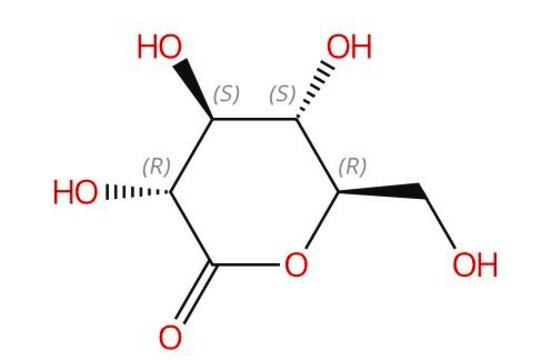G2164
Gluconolactone
99.0-101.0%, meets USP testing specifications
Synonym(s):
D-(+)-Gluconic acid δ-lactone, δ-Gluconolactone, 1,2,3,4,5-Pentahydroxycaproic acid δ-lactone, D-(+)-Dextronic acid δ-lactone
About This Item
Recommended Products
biological source
corn
Quality Level
Agency
USP/NF
meets USP testing specifications
Assay
99.0-101.0%
form
crystalline
color
white
mp
160 °C (dec.) (lit.)
solubility
water: soluble
application(s)
pharmaceutical (small molecule)
SMILES string
OC[C@H]1OC(=O)[C@H](O)[C@@H](O)[C@@H]1O
InChI
1S/C6H10O6/c7-1-2-3(8)4(9)5(10)6(11)12-2/h2-5,7-10H,1H2/t2-,3-,4+,5-/m1/s1
InChI key
PHOQVHQSTUBQQK-SQOUGZDYSA-N
Looking for similar products? Visit Product Comparison Guide
General description
Application
- to control the acidification kinetics of natural rubber latex (NRL) suspensions
- to study its effects on inhibition and disintegration of collagen fibrils
- to prepare alginate hydrogel
Biochem/physiol Actions
Other Notes
Storage Class Code
11 - Combustible Solids
WGK
WGK 1
Flash Point(F)
Not applicable
Flash Point(C)
Not applicable
Personal Protective Equipment
Choose from one of the most recent versions:
Certificates of Analysis (COA)
Don't see the Right Version?
If you require a particular version, you can look up a specific certificate by the Lot or Batch number.
Already Own This Product?
Find documentation for the products that you have recently purchased in the Document Library.
Customers Also Viewed
Our team of scientists has experience in all areas of research including Life Science, Material Science, Chemical Synthesis, Chromatography, Analytical and many others.
Contact Technical Service












